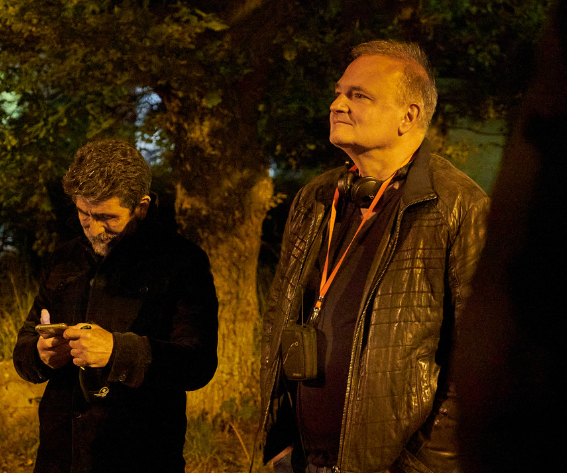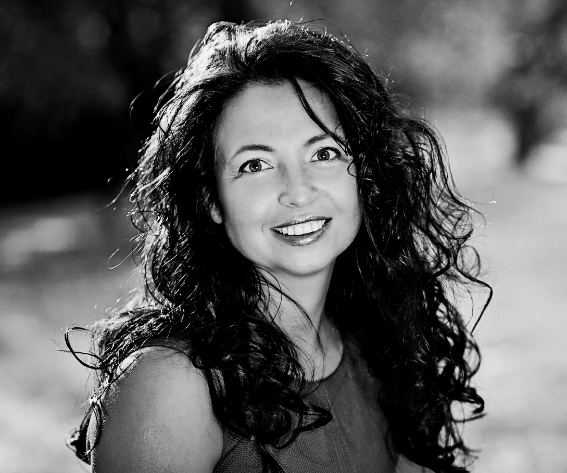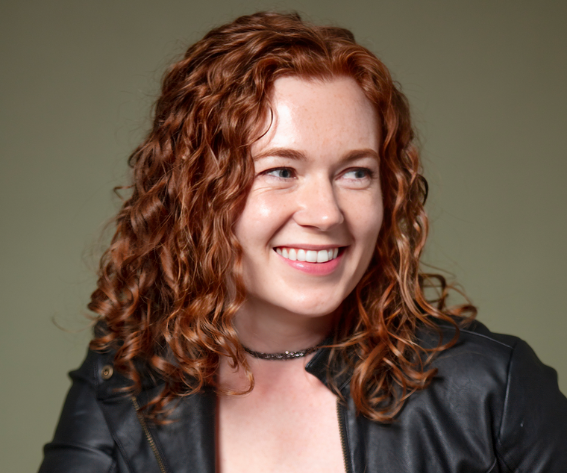Summer is still very much in full swing, the sun is shining relentlessly, and we’ve got a brand new set of winners! This month, we’re talking to Jacob Pilgaard, who wrote and directed ‘Behold, Such Clown‘, our Film of the Month winner for the July edition of our festival.
JL – First and foremost, congratulations for winning our Film of the Month award for July! How did you feel when you found out about this?
Jacob – Actually I found out during a meeting, when André, the DP of the movie, wrote that we had won. I was really happy, especially since this was the first win for Best Film. This means so much for everyone who has worked on the project, so thank you very much for this honor.
JL – How did you come up with the idea for the film? What were your main sources of inspiration behind it?
Jacob – You know, this character, the hospital clown, actually came from an entirely different project. Sadly this project was never completed due to financial issues. It was a dark comedy with some Paul Auster feel to it. Anyway, later on I came across an interview with a real life hospital clown and then I kinda thought “what would happen if this character from the other script had her own film” (the clown being a woman at the time). Then I started a lot of research, talking to clowns at the children ward at the local hospital, trying to get a feel of their work. This part is very important to me, the research. For my previous film about a veteran from Afghanistan, I spend months reading about soldiers coming home, PTSD, talking to veterans, etc. I like this part the best, when working on a project, to be quite honest. That and working with the actors on set. And during this process somehow I get a sense of the character which is really important to me. I knew quite early on that this film would be about redemption, the idea of trying to atone for mistakes in the past. In this case working with dying children. It’s quite grim but sometimes we just punish ourselves, right? Kinda like Affleck in “Manchester By The Sea”. Best film of the year so far in my opinion.
JL – Which was the most difficult moment in your quest of getting this project made, from scratch all the way to full completion?
Jacob – Finding a producer who shared my vision. And who would spend the better part of a year working for free. Eventually I found Line Kunø and I couldn’t have made the movie without her. Apart from that we had a lot of minor problems, practical issues, like finding a hospital to shoot in. In the end, we rented an entire vacated and empty hospital. Quite expensive but it gave us total freedom to shoot. And by empty I mean EMPTY so everything you see is due to the work of the production designer who did such a great job.
JL – You’ve managed to achieve a quality of cinematography on par with many Hollywood productions, and this on a budget of under £7000. How difficult was this, and what do you think would be different about your film if no financial constraints had been applicable?
Jacob – The quality of the look of the film and the cinematography is made possible by the crew, with no doubt. They really put a lot of effort into this. As a director I think the DP, at least for me, is my key collaborator on set. We really need to be in sync and thank God André Staal decided to shoot the film. He did such a great job along with the rest of the camera unit. We shot on RED Epic with some old Carl Zeiss high speed lenses. Of course this gave us a lot of freedom in post, when it came to color-grading. I am not quite sure what difference it would have made if we had had more money. I think we pretty much nailed the look I was aiming for. Probably we would have shot on Alexa instead though. I would still prefer the old lenses because I like the look and the fact that they’re all different and distinct. My previous film was shot with brand new Schneider lenses and it just looked so clean and sterile. In that case we made quite an effort in post to make it look gritty, adding a lot of grain into the picture.
JL – ‘Behold, Such Clown’ offers a layered exploration of many themes. Also, while the atmosphere is undoubtedly bleak, it still retains an air of optimism about it. How challenging was finding the perfect balance?
Jacob – This was really the aim, this sense of redemption in the end. To be quite honest I had the final frame of the picture in my mind from day one which is a total homage to “Magnolia”. The smile at the end is probably the bit that we did the most takes off on set. This was difficult actually. I think is was at 2AM, we had been shooting for like 10 hours and, it being December, it was really dark and cold and it even started to rain. I am happy that I kept Tommy going until I got the take I wanted otherwise the end of the film would have been ruined. As for the balance in the final film it really comes down to my editor, Steen. I think he has a keen eye for this, so the scale doesn’t tip. We talked a lot about how to build the tension. We really tried to hold back. I think the music plays a great part in this, the balance. Thankfully the composers Henrik and Thorsten just nailed it, whatever I asked them to write. I know absolutely nothing about writing music, so we talk a lot about emotions and the feeling we need in different scenes.
JL – You’ve also won our Screenwriter of the Month award, and you have previously written quite a few other screenplays for shorts. What would be your advice to potential screenwriters who wish to put their ideas on paper?
Jacob – I would say that they should be sure why they want to tell this particularly story, at this point in their career or life. Ask yourself – why am I making this film? And find the heart of the story. Too often I have met people asking me to read a script and during a feedback session it becomes quite clear that they have no idea why they wanna do this film, they have really no passion about it. And each time when you see the final film, you feel…nothing. It’s just empty. I’m not saying every short should be drama about death or in this case a dying child, but at least there has to be some kind of center, some sense of a core, and if you have no idea what your film is about or why you’re doing it, then why should I waste my time watching it?
JL – As for directing, you’ve also worked on ‘To the Top of the Mountain‘ (2015). What is the most important lesson which you’ve learned from that experience, and later applied it when you shot ‘Behold, Such Clown’?
Jacob – Two things, mostly. First or all, I found out that for me at least, I get the best results by being completely honest when filming. I mean, despite all the planning and the script readings, there are bound to be some questions from the actors or the crew on set that you really don’t have an answer for. And then I just flat out as I don’t really know, and then I ask someone, the actor, my assistant, anyone, what they think. I mean, there are so many talented people on set in every unit, so to me it only makes sense to ask when in doubt. If the focus puller has a better solution for this shot, then why not listen to him? So I do my best to be honest and to listen to people. I find that this approach gives me the best performances from the actors.
Secondly, I learned from “To the top of the mountain” that I needed more control over the framing of the shots. We did a lot of gung ho handheld on that one, and I really liked our footage, but later on I realized that I needed more control in order to achieve the precise emotion from the actor in a shot, so we went for mostly static shots on ‘Behold, such clown’. It gave me the control I needed with the mood and the light. Also I prefer like 50 or 75 mm lenses, or higher, and we needed to be static to use those lenses. Come to think of it, perhaps I prefer this due to the fact that my dad taught me still photography as a child. He’s quite a skilled artist and he taught me a lot about framing for which I am grateful today.
JL – Have you got any other projects already lined up? What can we look forward to from you in the future?
Jacob – Well, yes, several projects actually. Mostly features. There’s a finished script about our participation in the wars in Iraq and Afghanistan. I really think we need to address this. Was the war legal? We have lost a lot of Danish soldiers, particularly in the Helmand province, but to what point? I’m guessing I won’t be very popular trying to raise these questions but I don’t really care as long as we can shed some light unto the agenda of our government. And there you have it, the core I was talking about earlier. I am extremely sure why I want to make this film and that motivates me.
JL – How can our readers stay up to date with any developments regarding your film, as well as updates regarding any future projects of yours?
Jacob – Well, quite soon there will be a Facebook page for my production company, so just find “Willow Film” and then you can keep up.
JL – Thank you so much for your time! We wish you all the best in your future endeavours, and hope to enjoy your work again soon!









Leave a reply